The field of neurology is always full of advances and implementations; there is no edge to the progress it makes. The techniques and practice models are undergoing a rapid transformation. Everyday a new advancement in clinical care and research emerge, which require adaptation and implementation. In such a complex and rapidly transforming area of study, no researcher or clinician becomes too complacent or too relaxed, as it will not take long to fall behind. To provide favorable support in consideration of this scenario, the Neurology and Neuroscience Research journal has been established.
Neurology and Neuroscience Research is put upfront to provide a platform for the free accessibility and publication of research in neurology and the interdisciplinary research areas from round the globe. Neurology and Neuroscience Research is not constrained to a specific disease or a research, but to globalize the works from all the basic areas up to clinical research. The priority of the journal is to accelerate the area of study by providing basic and updated information which would influence the present mode of practice. All the different subsections of neurology are considered but not limited to: neuroanatomy, neurophysiology, neuropsychology, neuroradiology, neurosurgery, neurooncology, neurotoxicology, restorative neurology, and tropical neurology.
Editorial content of the journal features original/research articles, reviews, opinions, commentaries and expert opinions on new developments, clinical trials, clinical protocols, book reviews, perspective, clinical images, etc. All the manuscripts submitted will be subjected for peer-review by the Editors of the respective specialty section.
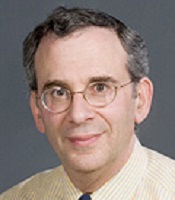
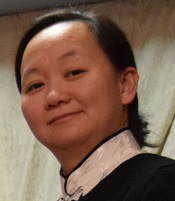
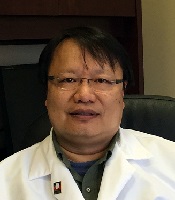

Dr. Chen received hid PhD in 2004 from Peking University, China, where he studied the function of MYB transcription factors in plants in the laboratory of Zhong-Ping Lin. He then moved to the United States and joined the laboratory of Zhao-Wen Wang at the University of Connecticut, where he worked as a postdoc and research associate studying the molecular mechanisms of synaptic transmission at the C. elegans neuromuscular junctions. Dr. Chen has worked as an Assistant Professor in the Department of Neuroscience at the University of Connecticut since 2013.
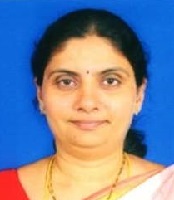
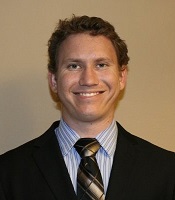
Dr. McBride received his Ph.D. in Bioengineering from the University of California, Riverside. His thesis work focused on the phenomenon of crowded protein osmotic pressure and its application to medical devices for treatment of severe brain swelling. During his Ph.D., Dr. McBride received several awards and fellowships, including a DOE GAANN Fellowship and a NSF IGERT Fellowship in Video Bioinformatics. He then spent four years as a post-doctoral fellow in Dr. John Zhang’s lab studying molecular mechanisms and therapeutic strategies of cerebrovascular disease (ischemic and hemorrhagic strokes). He was awarded a NIH Postdoctoral Fellowship to develop, understand, and treat vasovagal syncope. He is a member of AHA, National Neurotrauma Society, SFN, BMES, and AAAS.Dr. Dr. McBride currently works as an Assistant Professor in the Department of Neurosurgery at University of Texas Health Science Center at Houston.

Dr. Pavol is Assistant Professor of Clinical Neuropsychology in the Department of Neurology at the Columbia University College of Physicians & Surgeons at Columbia.She received her PhD in Clinical Neuropsychology from the University of Houston (Houston, TX) in 1995, completed an internship in Clinical Neuropsychology at University Hospital (London, Ontario, Canada) in 1995, and completed a fellowship in Rehabilitation Medicine at the Rehabilitation Institute of Michigan (Detroit, MI) in 1996. She has been board certified in Clinical Neuropsychology by the American Board of Professional Psychology since 1999. Dr. Pavol joined the Columbia University faculty in 2007 after many years in rehabilitation medicine settings. She has extensive experience in brain injury rehabilitation program coordination (inpatient and outpatient) as well as cognitive and neurobehavioral assessment with a range of medical diagnoses. She performs neuropsychological evaluations for inpatients and outpatients. In addition to her clinical responsibilities, Dr. Pavol’s research interests the relationship between cognition and carotid disease, cognition and heart failure (including left ventricular assistive devices), and cognition and rehabilitation medicine outcomes. She has coordinated training and certification in cognitive assessment for multiple research trials.
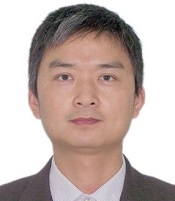
Dr. Qiangbin Wang received his B.S. and Mater degrees in Chemistry from Petroleum University of China in 1996 and 1999, respectively. He got his Ph.D. in Material Sciences from East China University of Science and Technology in 2002, and then joined Shanghai Jiaotong University as a Research Associate. From 2004 to 2008, he worked as a Postdoctoral Associate and an Assistant Research Professor at Arizona State University. In July of 2008, he joined the faculty in Suzhou Institute of Nano-Tech and Nano-Bionics (SINANO), Chinese Academy of Sciences. He is currently Professor in the Division of Nano-biomedicine at SINANO. He is Distinguished Professor at Shanghai Tech University, and Guest Professor at University of Chinese Academy of Sciences.
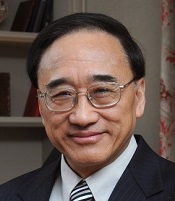
Dr. Xu received his Medical Diploma from Shanghai Second Medical University and Ph.D. in Anatomy/Neurobiology from The Ohio State University. He is currently the Mari Hulman George Professor of Neurological Surgery, and the Scientific Director of the Spinal Cord and Brain Injury Research Group at Indiana University School of Medicine. Dr. Xu’s research has focused on neuroprotection, and cell transplantation-mediated axonal regeneration and recovery of function following spinal cord injury. He has received continuous support from the National Institutes of Health (NIH), as well as support from the Department of Defense (DOD), Department of Veterans Affairs (VA) and Craig H Neilsen Foundation. He has served as a regular member on multiple NIH study sections. He has published over 150 research papers in prestige scientific journals such as Nature Neuroscience, Journal of Neuroscience, Annals of Neurology, Cerebral Cortex and Journal of Neurotrauma. He has co-edited books on “Animal Models of Acute Neurological Injuries” and on “Neural Regeneration”. He is the Editor-in-Chief of Neural Regeneration Research. He has also served as an editorial board member on several prestigious journals including Journal of Neurotrauma and Cell Transplantation. He is the Co-Chair of the International Neural Regeneration Symposiums (2011-2018).
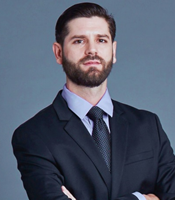
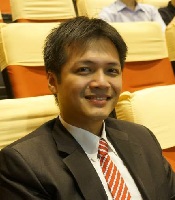
Dr. Chin-Lung Kuo is the Director of the Department of Otolaryngology, Taoyuan Armed Forces General Hospital, Taiwan, ROC. Dr. Kuo received his medical degree from the National Defense Medical Center and earned his PhD degree at the Institute of Brain Science, National Yang-Ming University, Taiwan, ROC. He completed his otolaryngology residency, chief residency, and fellowship training at the Department of Otolaryngology-Head and Neck Surgery, Taipei Veterans General Hospital, Taiwan, ROC. Dr. Kuo continues to make contributions to the scientific community. His primary field of study is otology, and his research is focused on middle ear surgery and hearing loss. Dr. Kuo has been invited to speak at international conferences and institutes. Dr. Kuo has been the first or corresponding author on more than 50 published articles in the last 5 years, including SCI original papers, review articles, as well as book chapters. In 2012, his research paper was chosen as the cover story of the journal Audiology and Neurotology. In addition, Dr. Kuo received the Outstanding Paper Award from the Laser Medicine Education and Research Foundation in 2013, and was awarded the 2015 Hayashi SPIO (Society for Promotion of International Otorhinolaryngology) Scholarship in Japan. Dr. Kuo believes that increased availability of research data can benefit both medical research and science education. For further details regarding his research, please use the following link to access his blog.

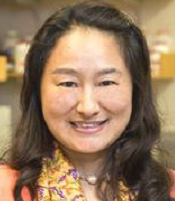
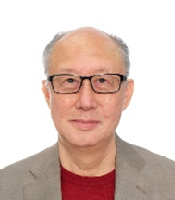
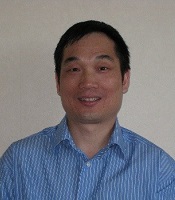

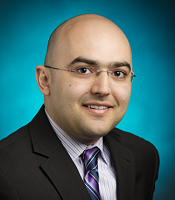
Dr. Murr received his medical degree from the Lebanese University. He completed his residency training in neurology at the University of Nebraska Medical Center (UNKC) and Creighton University in Omaha Nebraska and fellowship in epilepsy/clinical neurophysiology at Vanderbilt University in Nashville TN. He held faculty position at the UNMC prior to joining SIU in 2014 as neurology residency program director. He is a reviewer for multiple medical journals including Canadian Journal of Neurological Sciences, American Family Physician, Journal of Neurological Sciences and others. He is a member of American Academy of Neurology and the American Epilepsy Society and serves on national committees.
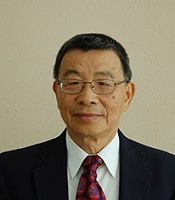
Constraint-induced music therapy (CIMT) has been shown to enhance hearing recovery in patients with sudden sensorineural hearing loss (SSNHL) by preventing maladaptive reorganization of the auditory cortex. This study was the second research to provide scientific evidence related to the neuroplasticity of the central auditory nervous system in response to constraint-induced acoustic rehabilitation.
This case report characterizes the clinical course of a 79-year-old man with idiopathic Parkinson disease who developed polyarthralgia following commencement of levodopa-carbidopa therapy, resolution of the polyarthralgia with discontinuation of it, and subsequent reappearance of polyarthralgia when the medication was restarted. The time-locked relationship between polyarthralgia and levodopa-carbidopa treatment suggests that this is an adverse drug reaction. The possible pathophysiologic basis of this unusual reaction is discussed.
A 53-year-old man with hypertension underwent CABG. Following surgery, he developed left leg numbness and weakness. Examination revealed left sciatic neuropathy, as well as a circumferential lesion over the left mid-thigh which was revealed to be due to a surgical tourniquet. He was diagnosed with tourniquet-induced left sciatic neuropathy, and by the end of his hospitalization, recovered full strength and sensation in his left lower extremity.
This current review addresses the topic of therapeutic strategies for idiopathic SSNHL from the perspective of neuroplasticity. Assertions pertaining to the plausibility of this approach are based on a large body of evidence from animal experiments and recent studies on humans.
The authors briefly summarize advances in the broad field of biochirality connecting two poles of the phenomena: the atomic orbitals and the brain’s cognitive function. Analysis of current results allows introducing the new generation of entangled biomarkers ranging from the molecular chirality to laterality of cognitive and executive functions.
Diabetes control in the studied population could be too strict, and consequently, hypoglycemia in these patients could play a role in the major decline of cognitive function. Therefore, avoiding treatments that could lead to hypoglycemia in these patients could be very important. The aim of the treatment of diabetes in elderly patients is focused on stabilization, prevention of acute complications, and improving the quality of life.
Authors have put forth a hypothesis that the brain bears the innate capability of performing high-level mathematical computing in order to perform certain cognitive tasks. Authors give examples of Orthogonalization and Fourier transformation and argue that the former may correspond to the physiological action the brain performs to compare incoming information and put them in categories, while the latter could be responsible for the holographic nature of the long-term memory, which is known to withstand trauma. Authors plead that this proposal may not be as strange as it may appear, and argue how this line of mathematical modeling can have far-reaching consequences.
Spinal cord compression due to a catheter tip granuloma of an intrathecal morphine pump.